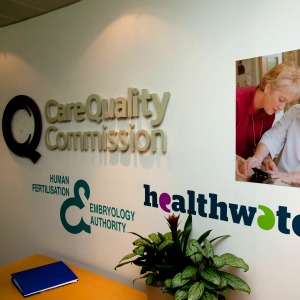RCGP calls for immediate halt to CQC inspections

The RCGP has ramped up the growing pressure on the CQC by calling for an ‘emergency pause’ in CQC inspections to relieve pressure on ‘crisis-hit’ practices and avoid risks to patient safety.
At the weekend, the RCGP’s governing council voted overwhelmingly in favour of an emergency motion calling for an immediate pause in the CQC’s programme of routine inspections, in order for practices to better manage their workloads.
As a result of the motion, the college has sent an open letter to health secretary Jeremy Hunt detailing its concerns.
It follows the college’s own blueprint for general practice, which called for a review of the CQC’s role.
The call also intensifies the pressure on the regulator, following yesterday’s support for a motion at the BMA Annual Representatives Conference calling for the CQC to be decommissioned and the funding to be reinvested in frontline services.
The RCGP motion said pausing the inspection regime would free up time for GPs who are already struggling to cope with rocketing patient demand in the face of an acute GP shortage – a combination that is putting patient safety at risk.
Related stories
BMA delegates support calls for CQC to be abolished
In the letter to Mr Hunt, RCGP chair Dr Maureen Baker said that the burdens being placed on GPs by the CQC inspection regime, along with pressures to provide seven-day access for routine care, are ‘undermining’ efforts to turn around the current crisis in general practice.
She wrote: ‘In the view of RCGP Council, the current inspection process tends to focus on those things that can be most easily documented and generates considerable additional clinical and administrative activity for practices.’
The letter reiterated the college’s call for ‘an urgent review of the CQC’s regulatory regime, to eliminate unnecessary bureaucracy’.
It added: ‘Whilst this takes place, we call for the CQC’s programme of routine inspections to be halted on a temporary basis, as a means of alleviating the pressures on general practice which have now reached such an extent that they are giving rise to serious patient safety concerns.’
Dr Baker said this would not prevent the CQC from inspecting practices ‘where specific reasons existed for doing so, for instance were a practice to be subject to a significant level of complaints’.
The motion at the BMA’s Annual Representatives Meeting was taken as ‘reference’ – meaning it won’t become official BMA policy – but GP leaders argued that it showed the strength of feeling against the regulator from the whole medical profession.
It followed a similar scenario at the recent LMCs Conference, where a motion calling for the abolition of the CQC was passed as policy.
Professor Steve Field, chief inspector of general practice at the CQC and a former chair of the RCGP, said: ‘We are extremely disappointed that the Royal College of General Practitioners has called for an “emergency pause” to our inspections of general practices, which we carry out to make sure that people across England get safe, high-quality and compassionate primary care. The safety and quality of care of people who use these services continue to be our number one priority.
He added: ‘When over 1 in 7 general practices are not delivering the care that patients have every right to expect, now is not the time for us to put a halt on our inspections.
‘As a practising GP, I have never intended for our inspections to be experienced as a burden to those in the profession – and for a well-managed practice, the information we ask them to provide should not present itself as one.’









